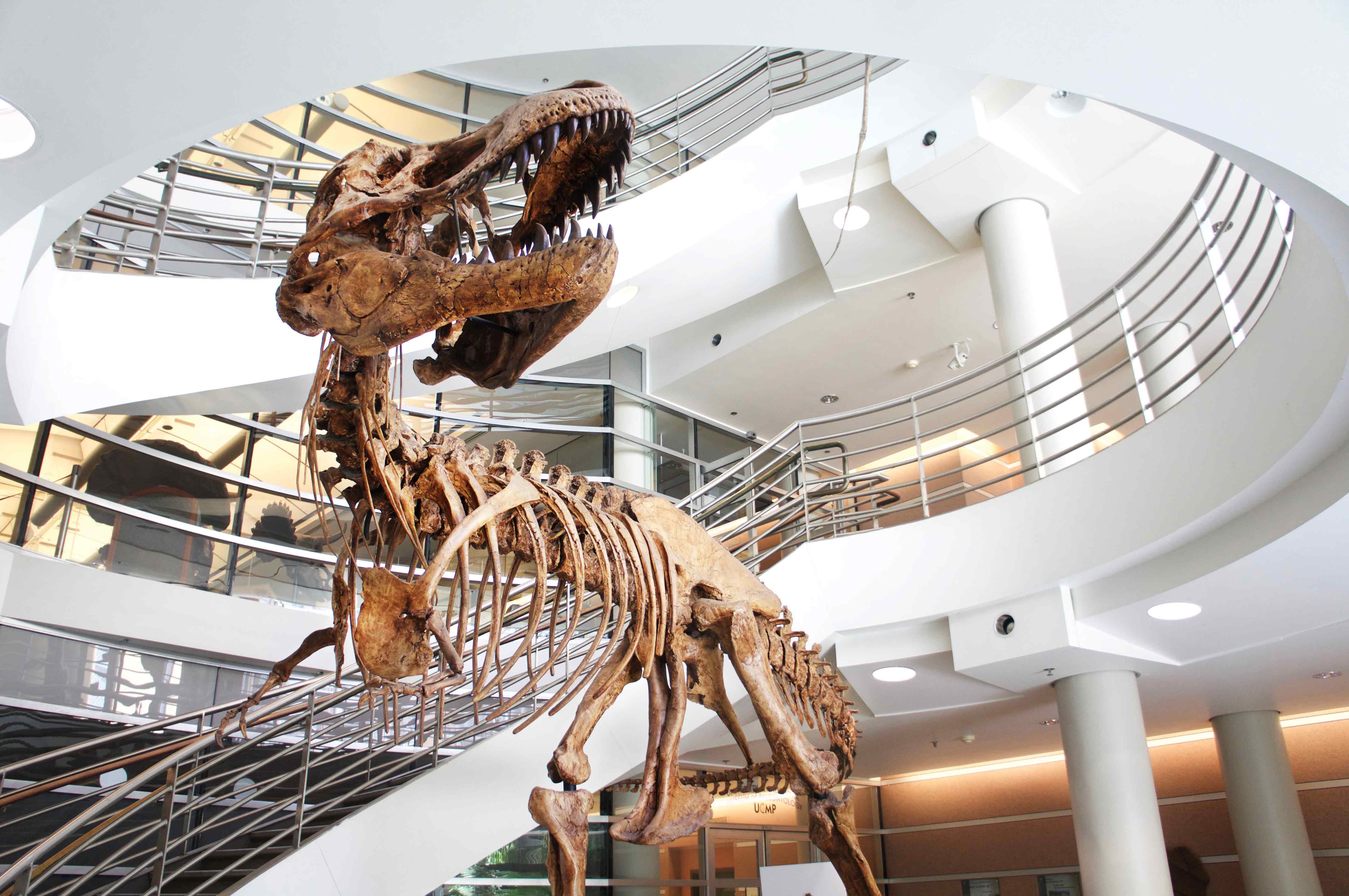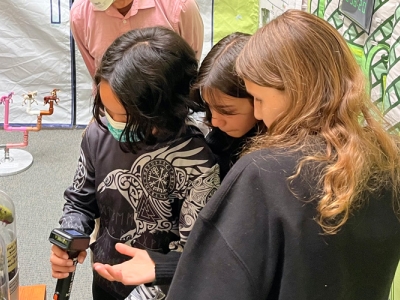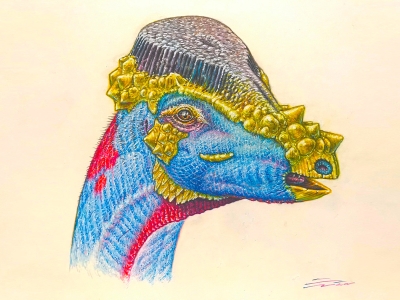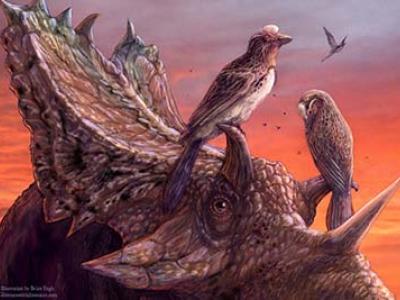UC Museum of Paleontology
Established in 1921, the mission of the University of California Museum of Paleontology (UCMP) is to investigate and promote the understanding of the history of life and the diversity of the Earth's biota through research and education.
UCMP is one of the country’s major research museums, housing one of the largest paleontological collections of any university museum in the world. By fully integrating its research, teaching, and educational outreach with effective uses of technology, UCMP fulfills its mission of increasing the understanding of all aspects of Earth history and biodiversity–from the first appearance of life on Earth to current genetic patterning in populations. The Museum's well-curated and data-based collections include both fossils and modern organisms, and encompass past and present biodiversity from all major groups of organisms from all continents of the world, representing the broad research breadth of UCMP faculty, staff, and students.
Research within the Museum of Paleontology focuses primarily on the evolutionary history, interactions, and relationships of species with their environments. Because this requires a multidisciplinary integration across a wide variety of spatial and temporal scales, this research also contributes broadly to fields outside of paleontology, including: systematics, evolution, development, biostratigraphy, paleoecology, paleoceanography, paleobiogeography, and paleoenvironmental analysis, and global change biology.
The UCMP’s research and training missions are supported by state-of-the-art facilities, including laboratories and equipment for fossil preparation, molding and casting of fossils, visualization, histological analysis of living and fossil tissues, augmented by access to the other Berkeley Natural History Museums, the Evolutionary Genomics Lab and facilities such as the Advanced Light Source at the Lawrence Berkeley National Laboratory.

The Museum serves the University community in various research projects and provides support for instruction at Berkeley and other UC campuses. Our unique synthesis of research, teaching, outreach, and collections allows new insights into the history and evolution of life. In addition, our collections are used by paleontologists, biologists and geologists from around the world. Through generous bequests the Museum also has several funds that support graduate student research as well as our extensive education and outreach programs.
UCMP further serves a broader audience through two publications: PaleoBios, a peer-reviewed scientific journal, and UCMP News, a newsletter about UCMP's programs and research.
UCMP has a long history of public outreach. Programs include teacher workshops, lecture series, curriculum development, community college partnerships and four award-winning web sites. UCMP pioneered innovative uses of the web to share knowledge. After over 30 years of experimentation and development, the current UCMP websites average ~ 5 million page accesses per month with over 6,000 pages devoted to the explanation of topics in evolution, paleontology, biodiversity, geology, the history of science, and related topics.
UCMP also has a long history of providing professional development opportunities and classroom resources for teachers in evolution and related topics. These include short courses for teachers and workshops in local school districts and presentations at professional meetings of the California Science Teachers Association, the National Association of Biology Teachers, the National Science Teachers Association, Geological Society of America, and the Society of Vertebrate Paleontologists. UCMP has an advisory board of educators that help develop, pilot and evaluate programs designed for K-12 and undergraduate classrooms.
Combining the scientific expertise of UCMP with the experience and expertise in teacher professional development, UCMP has successfully developed a suite of interactive websites and inquiry-based digital modules in its Understanding series, developed with support from multiple funding sources including the National Science Foundation, National Institutes of Health, Howard Hughes Medical Institute, the Institute for Museum and Library Services, and the Moore Foundation. Understanding Evolution provides content and resources for teachers, their students, and the general public to increase their understanding of the processes, patterns, and importance of evolution. Understanding Science portrays what science is and how it really works, focusing on strengthening the teaching of the nature and process of science in grades K-16. The newest UCMP web resource, Understanding Global Change, explores the causes of and solutions to climate and environmental change, and invites users to construct models to explain what drives global change.
Photos © UC Museum of Paleontology





